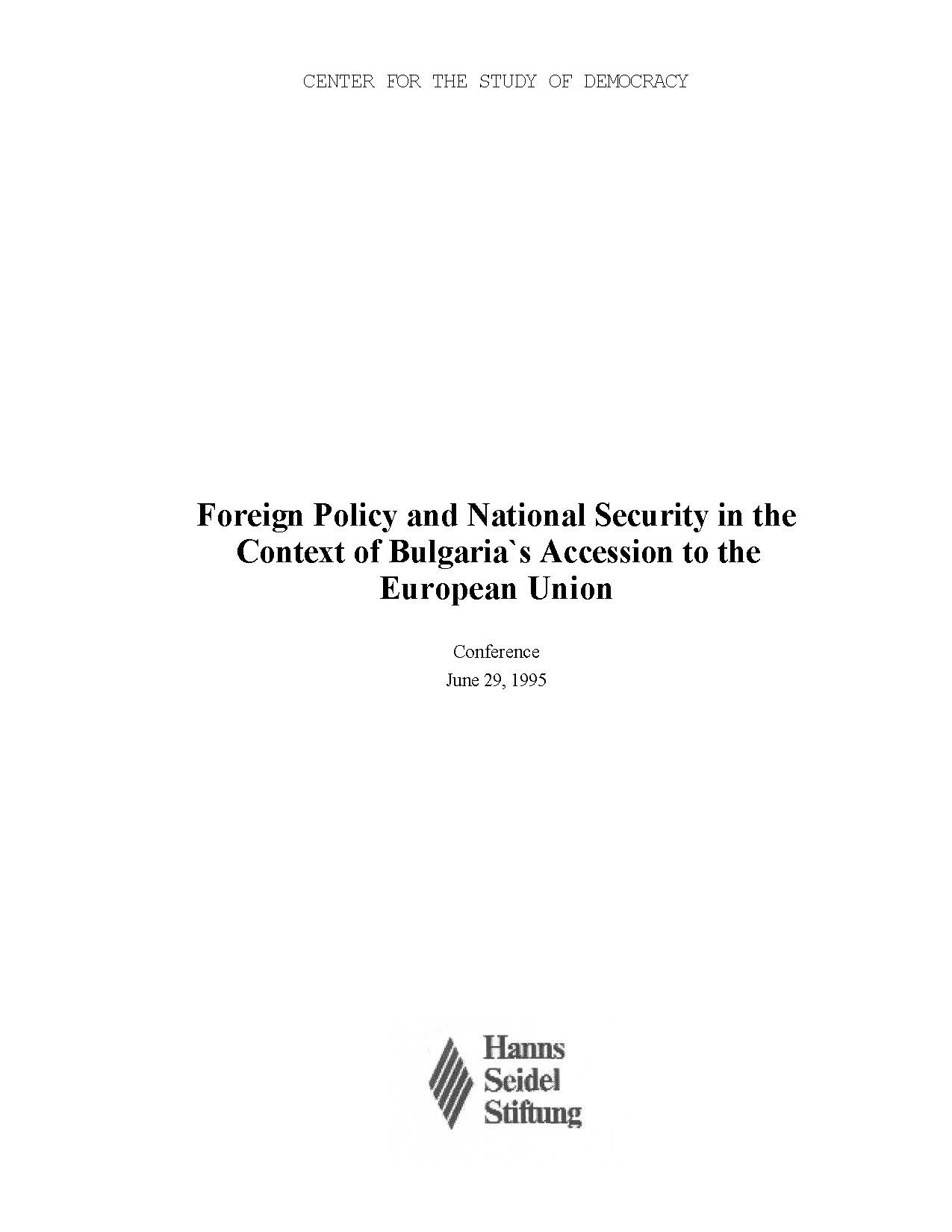
Foreign Policy and National Security in the Context of Bulgaria`s Accession to the European Union
The text includes the conference proceedings of the event held on 29 June 1995.
More...We kindly inform you that, as long as the subject affiliation of our 300.000+ articles is in progress, you might get unsufficient or no results on your third level or second level search. In this case, please broaden your search criteria.

The text includes the conference proceedings of the event held on 29 June 1995.
More...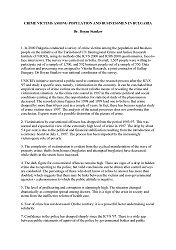
In 2000 Bulgaria conducted a survey of crime victims among the population and business people on the initiative of the Turin-based UN Interregional Crime and Justice Research Institute (UNICRI), using its methods (the ICVS 2000 and ICBS 2000 questionnaires, face-to-face interviews). The survey was carried out in Sofia. Overall, 1,505 people were willing to participate out of a sample of 1,700, and 532 business people out of a sample of 550. Data collection and processing was assigned to Vitosha Research, a joint contractor of Gallup Hungary. Dr Boyan Stankov was national coordinator of the survey.
More...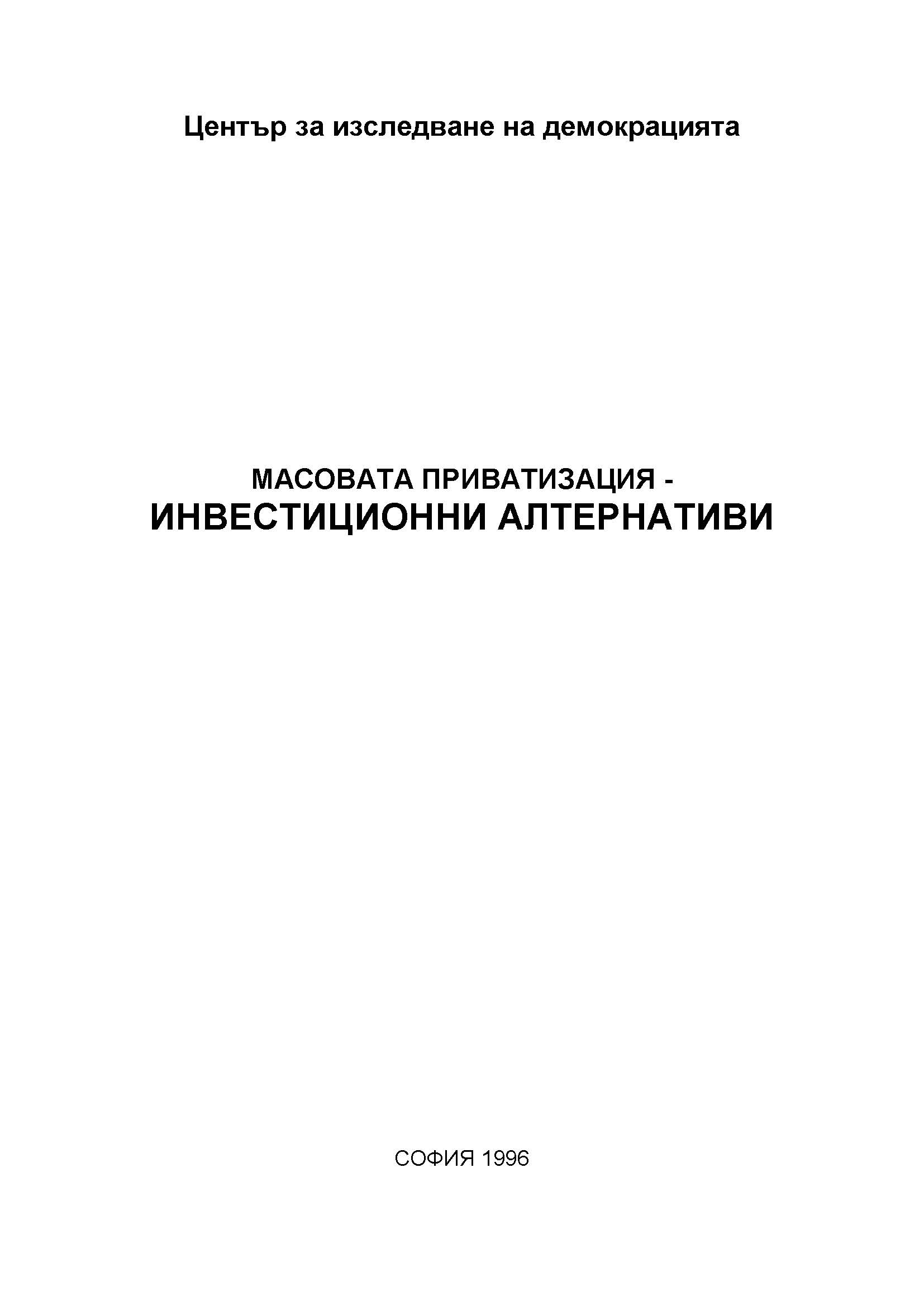
This brochure has been prepared under the project "The two dimensions of privatization in Bulgaria - mass and market privatization" of the Center for the Study of Democracy. It aims to support independent analysis and recommendations efforts of state institutions to speed up the privatization process. From essential for the progress of economic reforms in grenade degree of awareness of the public and professionals about the nature and technological features of mass privatization. The brochure "mass privatization - investment alternatives" is intended for all readers interested in the problems of mass privatization in Bulgaria. It will help more in particular of citizens who are already enrolled in it and must make their own investment choice. The brochure was published with the assistance of the Center for International Private Enterprise (US).
More...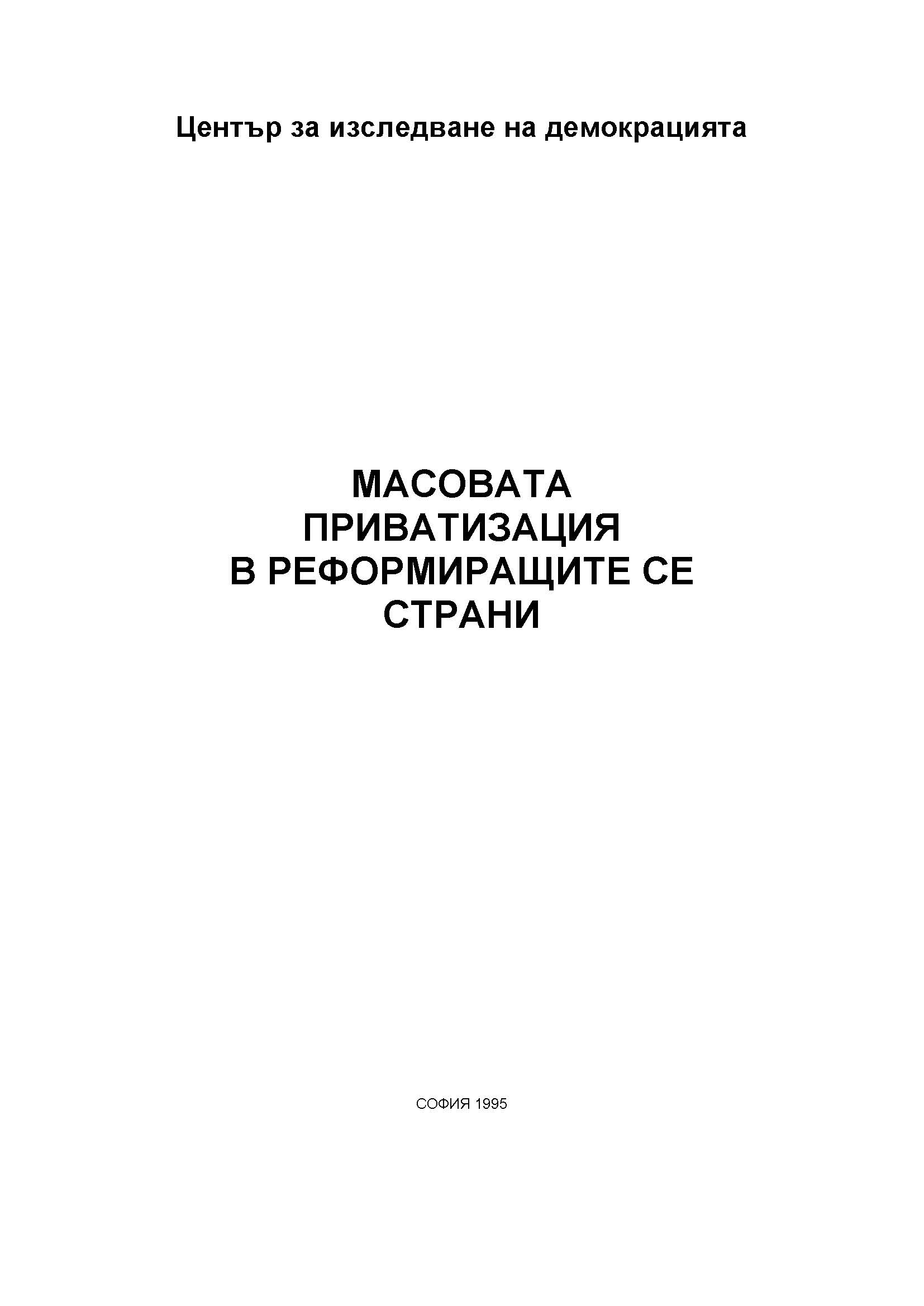
Regardless of the course and progress of change, the political and social situation, there is no former socialist state that has not taken at least initial steps in the field of privatization. The most commonly used approaches to privatization can be summarized in two - free (coupon, voucher) privatization and capital privatization (privatization fee). The two methods are only conditionally distinguishable, since they are not applied anywhere in pure form. The application of the capital methods of privatization and the free ones everywhere are accompanied by difficulties.
More...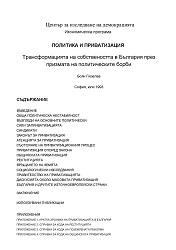
Undoubtedly, the process of ownership transformation is central to economic reform. Without it, Bulgaria can not become a functioning market economy. Privatization (or restitution) is therefore a political process. Its successful outcome guarantees the future and stability of democracy in the country.Privatization, however, has become one of the fields of opposition between the political forces. The course of ownership transformation has been delayed, which has created the danger of it becoming an endless and fruitless discussion, giving fruit to political struggles, but leading to a deepening of the economic crisis.The fact that privatization, land re-establishment and restitution had to start in an unstable political environment, accompanied by economic recession and lack of interest on the part of foreign investors, created a dangerous tendency to defame them.In the context of a strong political confrontation, the interests of political forces are moving ahead with economic arguments. In such a situation of chaos and instability in institutions, state and municipal bureaucracies are more likely to hamper privatization rather than cooperate because they have no interest in losing the monopoly on property.
More...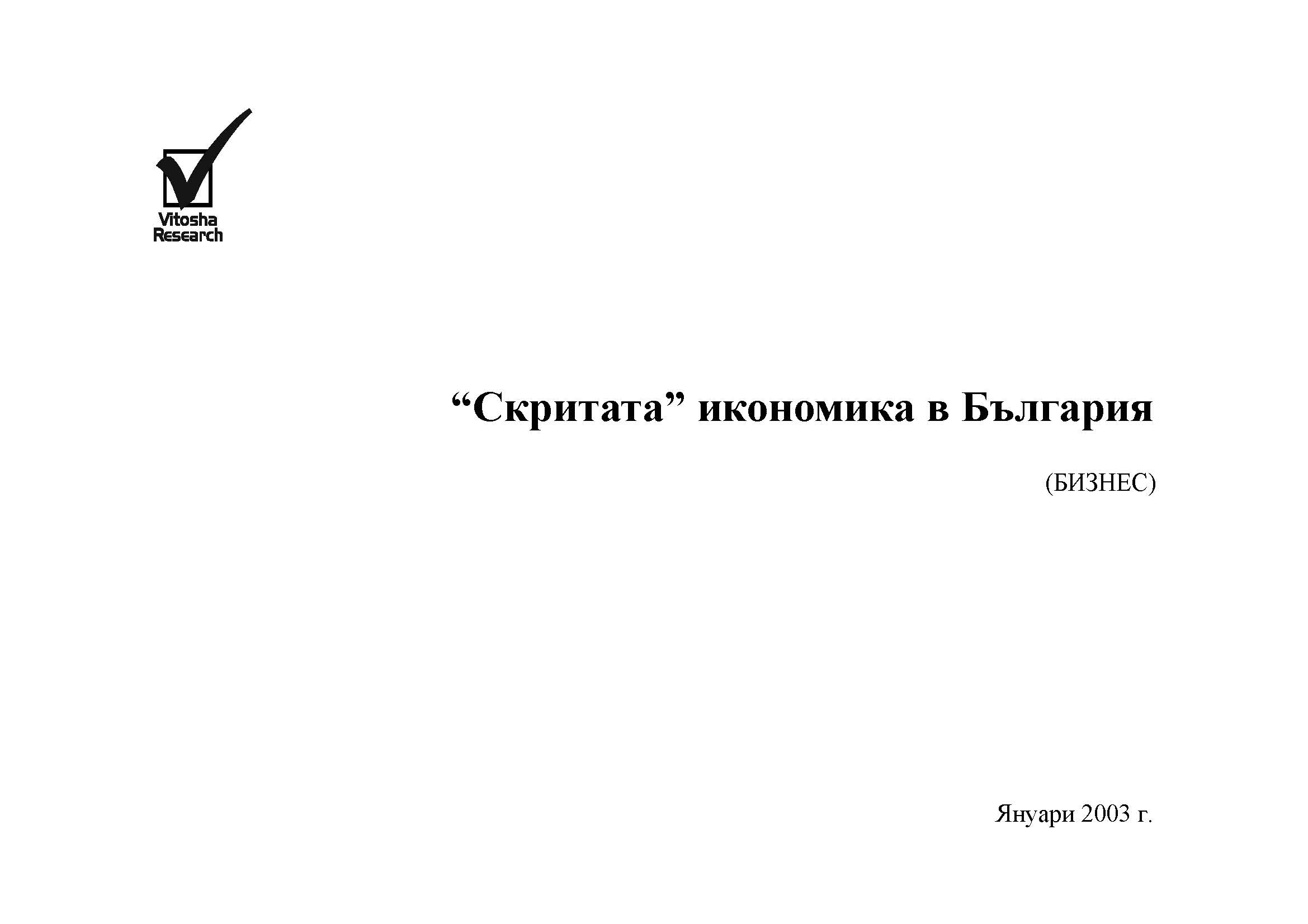
Between November 25 and December 16, 2002, Vitosha Research conducted a national representative survey of the business sector on "Hidden Economy in Bulgaria". The survey was attended by 530 companies across the country.
More...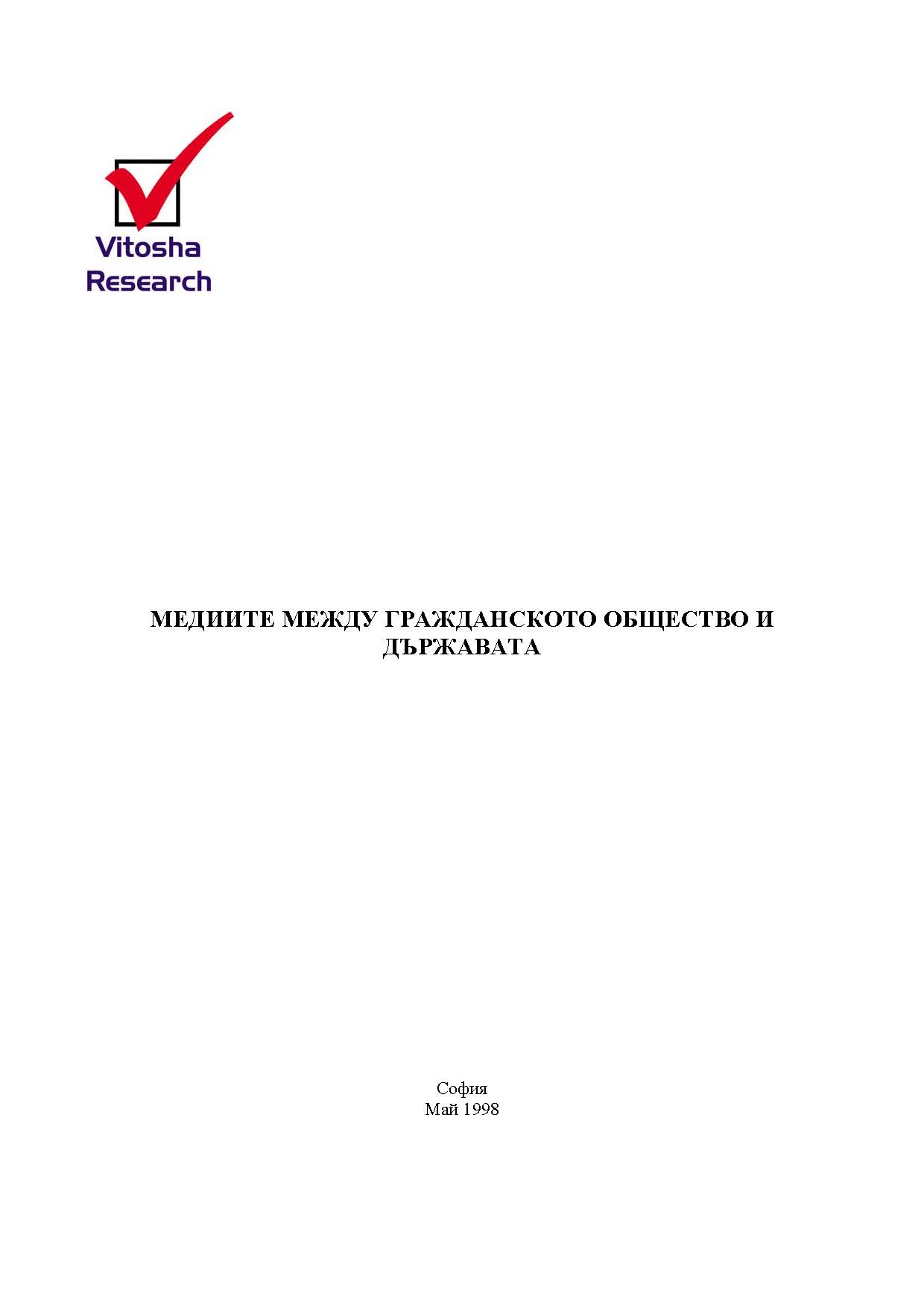
The present sociological analysis is based on empirical data from a survey of public opinion conducted by Vitosha Research in May 1998. It aims to determine the extent of the mass media impact on Bulgarian society. The focus is on the way in which relations between the Fourth Power and the State are being built and regulated.
More...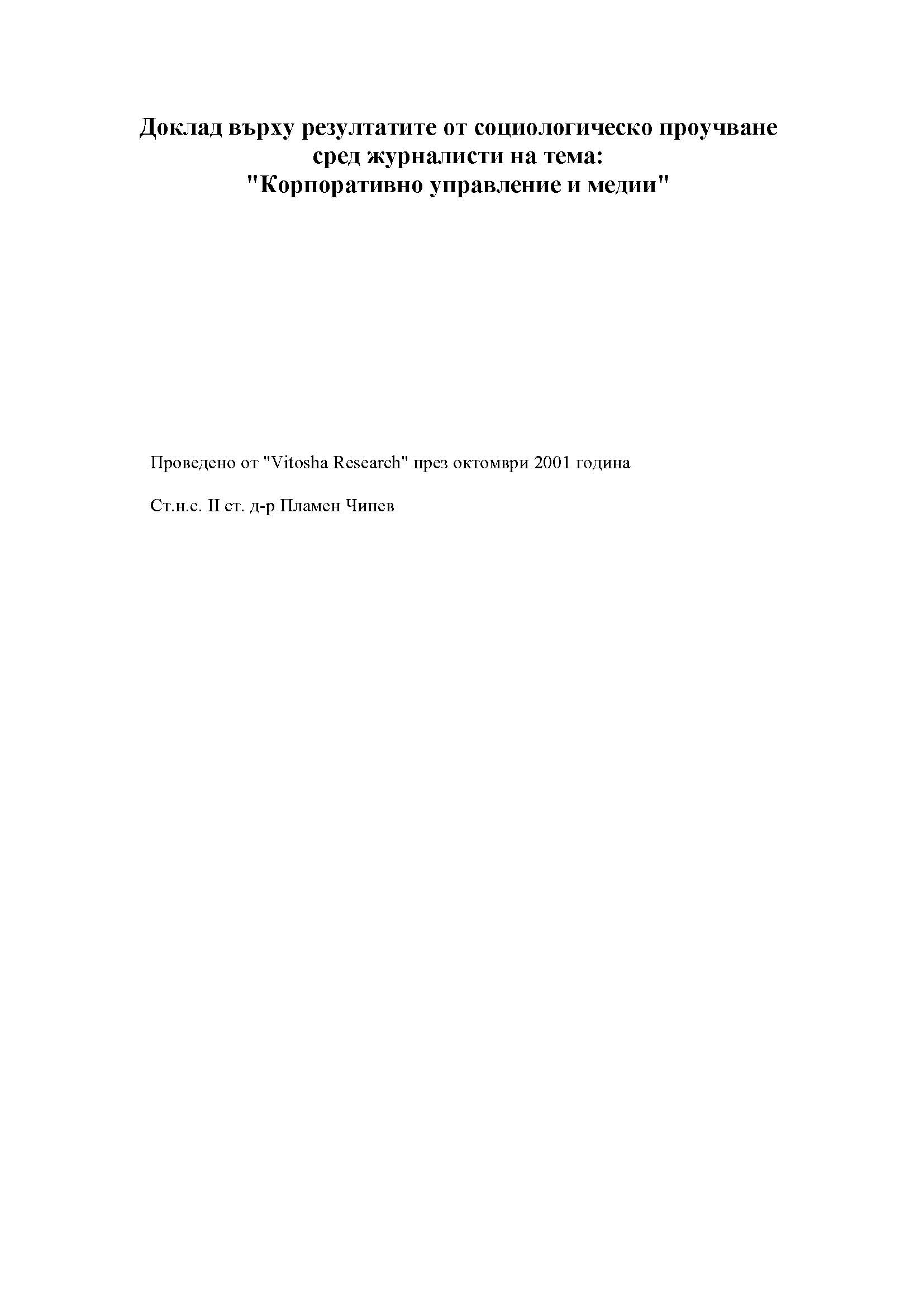
The survey was conducted among a wide range of journalists (77), electronic, print and internet editions, including a wide range of media from the capital and about 20% of provincial publications. More than 70% of respondents are from specialized economic publications with a very high level of education, predominantly humanitarian, but not a small part - more than 1/3 are economically educated, with an even larger proportion (43%) attending economic courses and specializations.
More...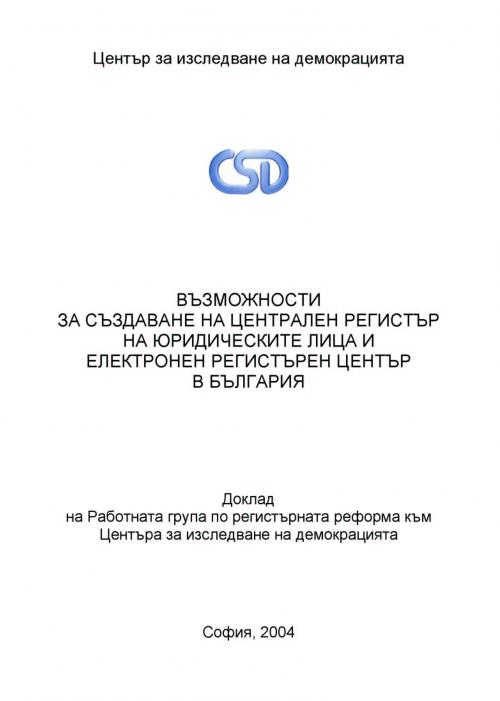
The presented report was prepared by the Working Group on Registry Reform at the Center for the Study of Democracy during the period 2001-2003 and reflects the recommendations and suggestions made during its preparation by state institutions, NGOs, representatives of the business and Bulgarian and foreign experts. The main ideas of the report were presented at an international seminar "Modernizing the Commercial Register in Bulgaria", organized on 9 February 2004 by the Ministry of Justice and the Ministry of Economy with the support of the US Agency for International Development.
More...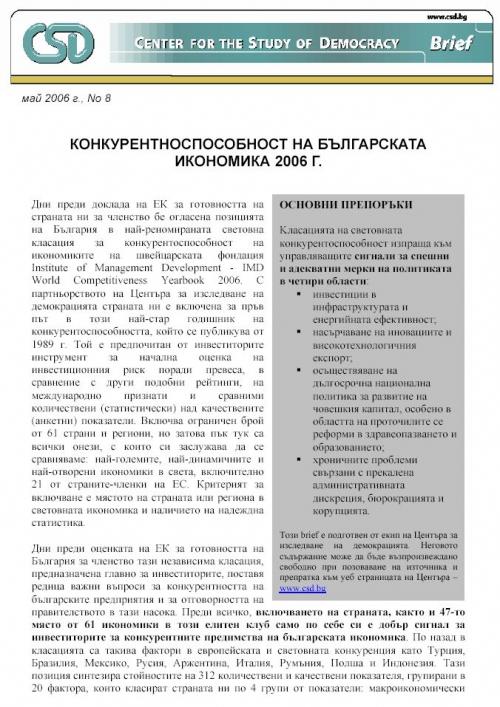
Bulgaria’s position in the world oldest and most comprehensive annual report on the competitiveness the World Competitiveness Yearbook 2006 of IMD (International Institute for Management Development) was presented several days before the European Commission report on Bulgaria’s readiness for accession. With the partnership of the Center for the Study of Democracy this year Bulgaria was included for the first time in the report, issued since 1989. The report ranks and analyzes how 61 selected economies creates and sustain the competitiveness of their enterprises. It stands out among reputed international ratings with the predominance of more reliable statistical data over the qualitative (survey) data. The rating uses 312 indicators covering a broad spectrum of competitiveness, classified in four major groups: economic performance, business efficiency, infrastructure and government efficiency. The policy brief makes an overview of the report's main findings and recommendations with focus on the Bulgarian economic performance.
More...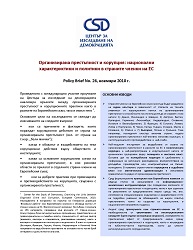
The European Commission (EC) contracted the Center for the Study of Democracy (CSD) to analyse the links between organised crime and corruption. The main objectives of the study were to identify: • causes and factors that engender corruption by organised crime (including white-collar criminals); • the scope and the impact of that corruption on society and institutions; • organised crime’s main corruption schemes, the areas or risks they create, and the related differences amongst European Union (EU) Member States (MS); • best practices in prevention and countering corruption linked to organized crime; framework for a future assessment of trends in the link between organized crime and corruption, as well as corresponding counter measures.
More...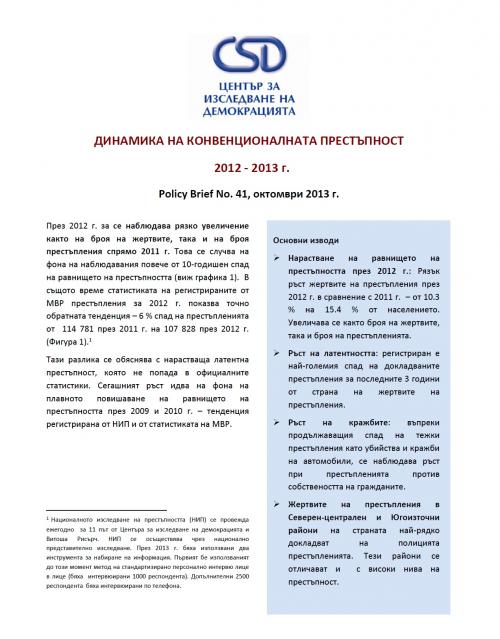
In 2012 there was a sharp increase in both the number of victims and the number of crimes compared to 2011. These trends take place in the context of a 10-year drop in crime rates. Meanwhile, the Ministry of Interior (MoI) statistics of registered crimes in 2012 showed the opposite trend - a 6% drop from 114,781 in 2011 to 107,828 registered crimes in 2012. This difference is explained by the rising level of unregistered crimes that are not part of the official statistics. Victims of crime in South Central and South Eastern regions of the country are least likely to report crimes to the police. These areas are also characterized by high levels of crime victimisation.
More...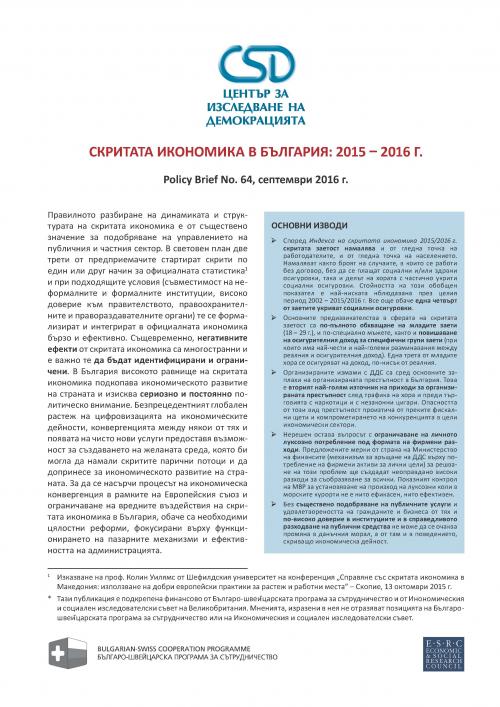
In Bulgaria the high level of hidden economy undermines the economic development of the country and requires serious and persistent political attention. The unprecedented growth in the field of digitization of economic activities, the convergence between some of them, and the emergence of brand new services creates an opportunity for achieving a desirable environment, which may reduce the hidden cash flows and boost the economic development of the country. Comprehensive reforms focused on the functioning of the market mechanisms and administrative effectiveness are needed in order to promote the process of economic convergence within the European Union and limit the harmful effects of the hidden economy in Bulgaria.
More...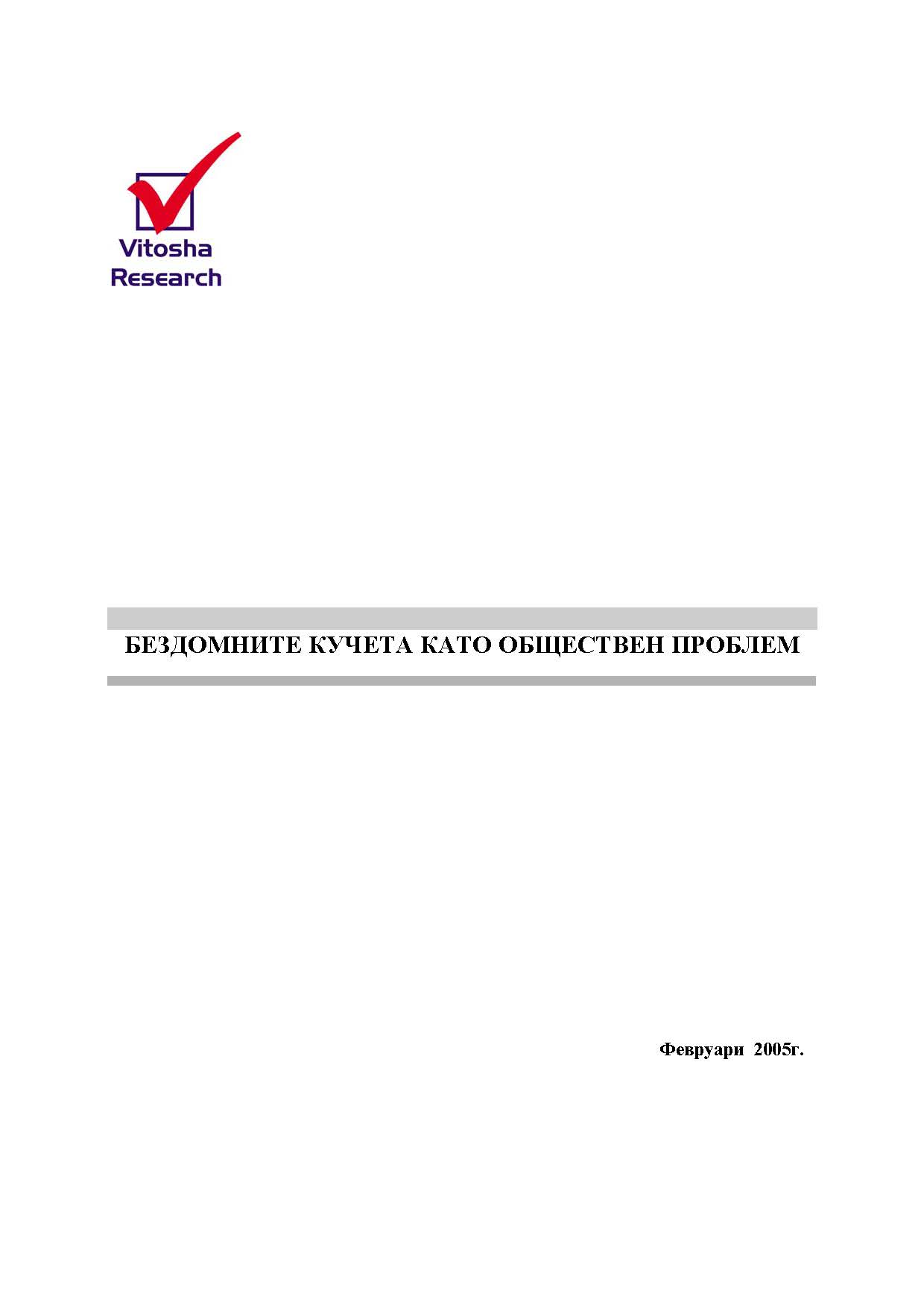
Bulgarian society has been facing the problem of street-dogs for a long time since a consensus solution has not been found. The long lasting debates and the lack of an effective commonly acceptable solution has lead to the polarization of opinions and has blocked most of the initiatives undertaken.
More...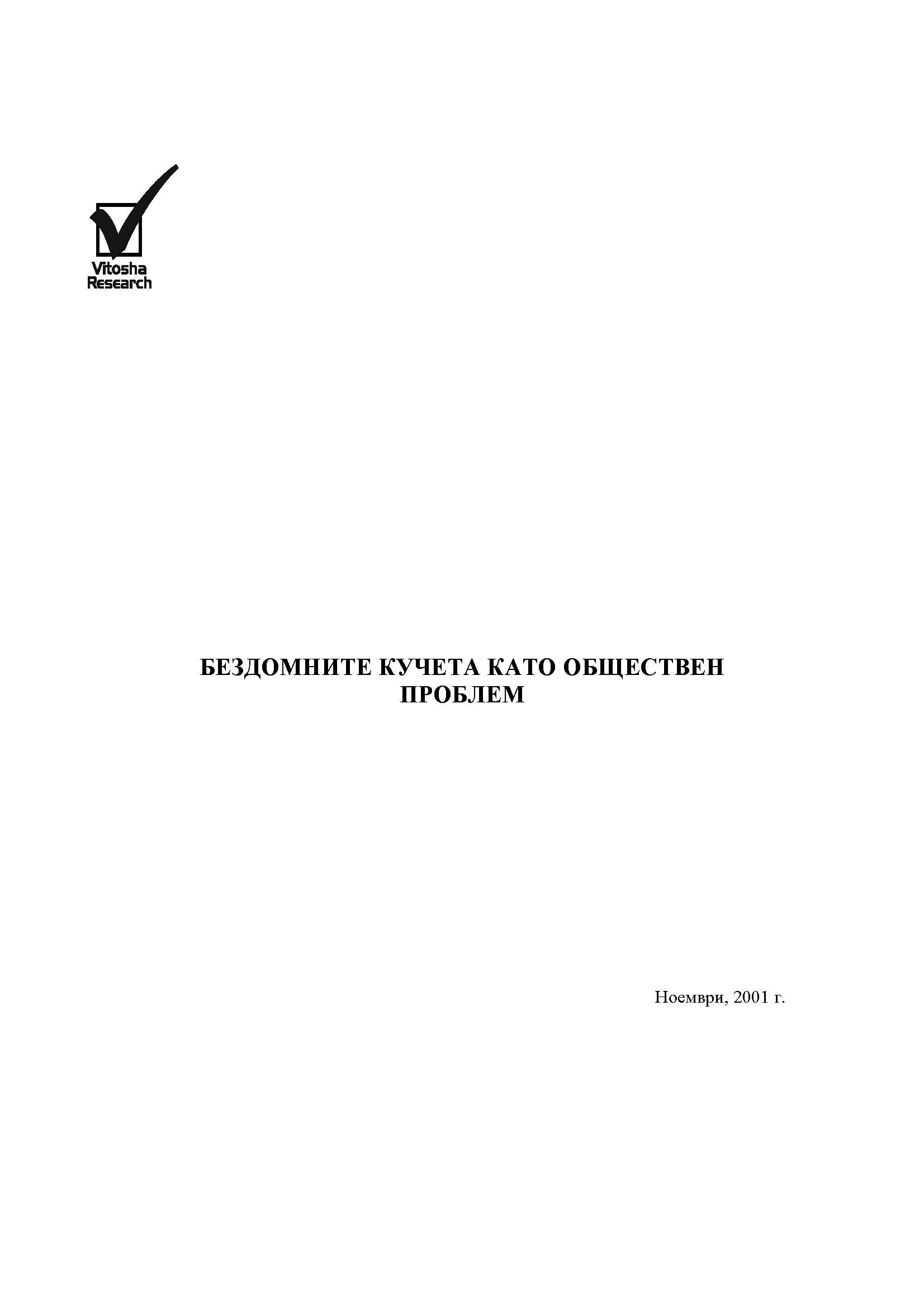
Bulgarian society has been facing the problem of street-dogs for a long time since a consensus solution has not been found. The long lasting debates and the lack of an effective commonly acceptable solution has lead to the polarization of opinions and has blocked most of the initiatives undertaken.
More...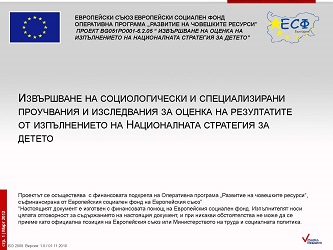
The objective of surveys commissioned by State Agency for Child Protection was to register changes in the first three years of implementation of the National Child Strategy to summarize assessments of target groups and the general public on the key priorities of the National Strategy, to establish whether they meet the support and understanding by the general public and of specific groups associated with its implementation, to recognize the knowledge and progress in achieving the main objectives of the overall policy on child protection.
More...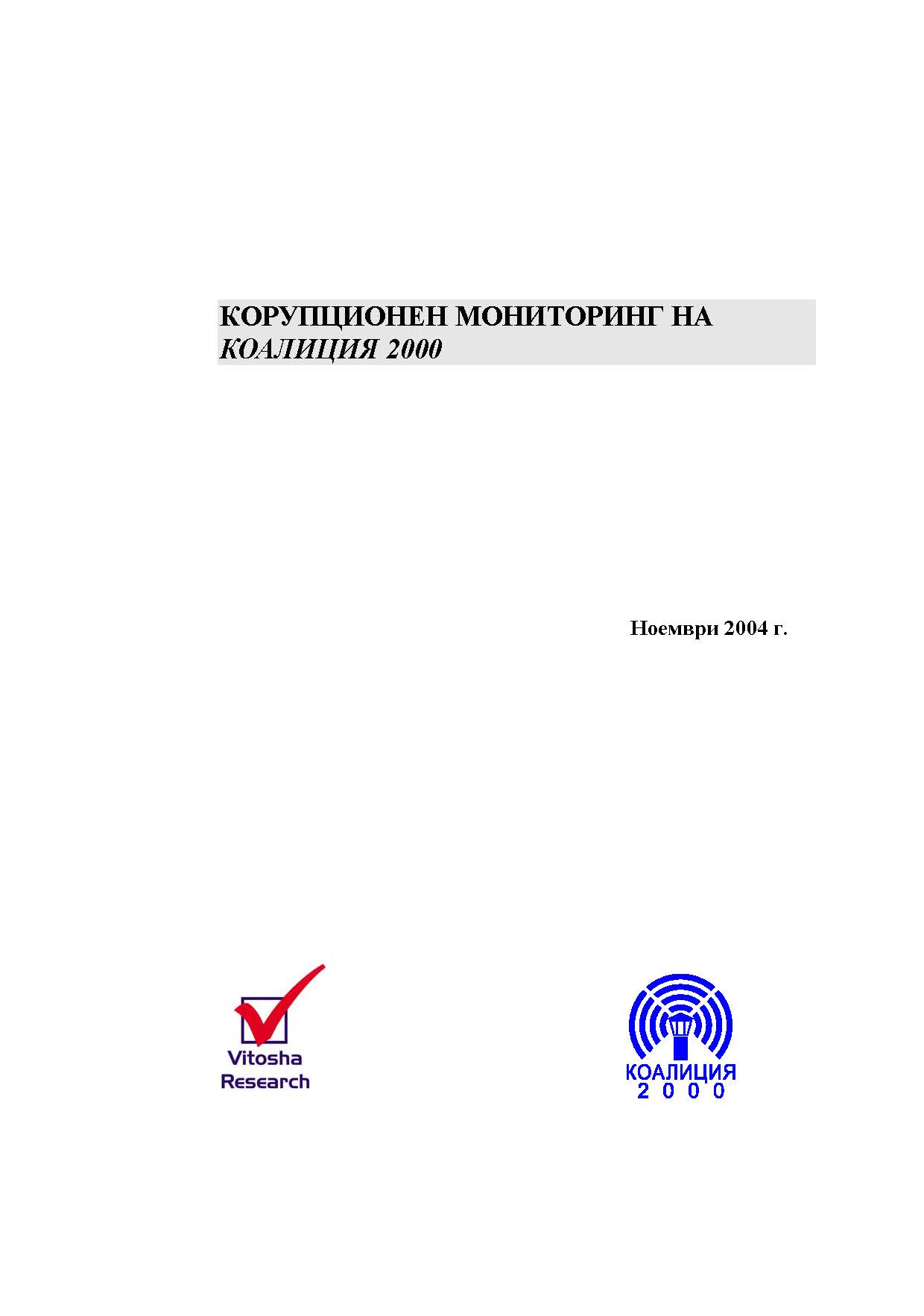
In the period November 18 - 29, 2004 Vitosha Research conducted its regular survey on corruption among the Bulgarian population. This study is part of the Corruption Monitoring System of Coalition 2000. The report "Corruption monitoring by Coalition 2000" presents the main findings, comparative analysis, trends and conclusions based on the data of the last survey.
More...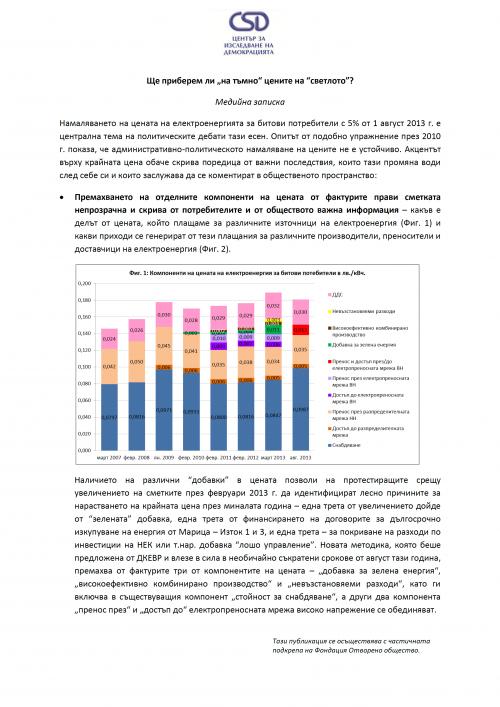
The decision to decrease by 5% the retail electricity prices as of 1 August 2013 is among the topics at the heart of political debates in Bulgaria this autumn. A similar move in 2010 clearly showed that such a politically mandated price decrease was not sustainable in the long run. It ended in the sharp increase (13% y-o-y) of electricity prices in 2012, and subsequent social unrest, which brought down the Bulgarian government in February 2013. The focus on the final consumer bill reduction in the public debate overshadows some of the other structural effects of the decision, which are worth mentioning.
More...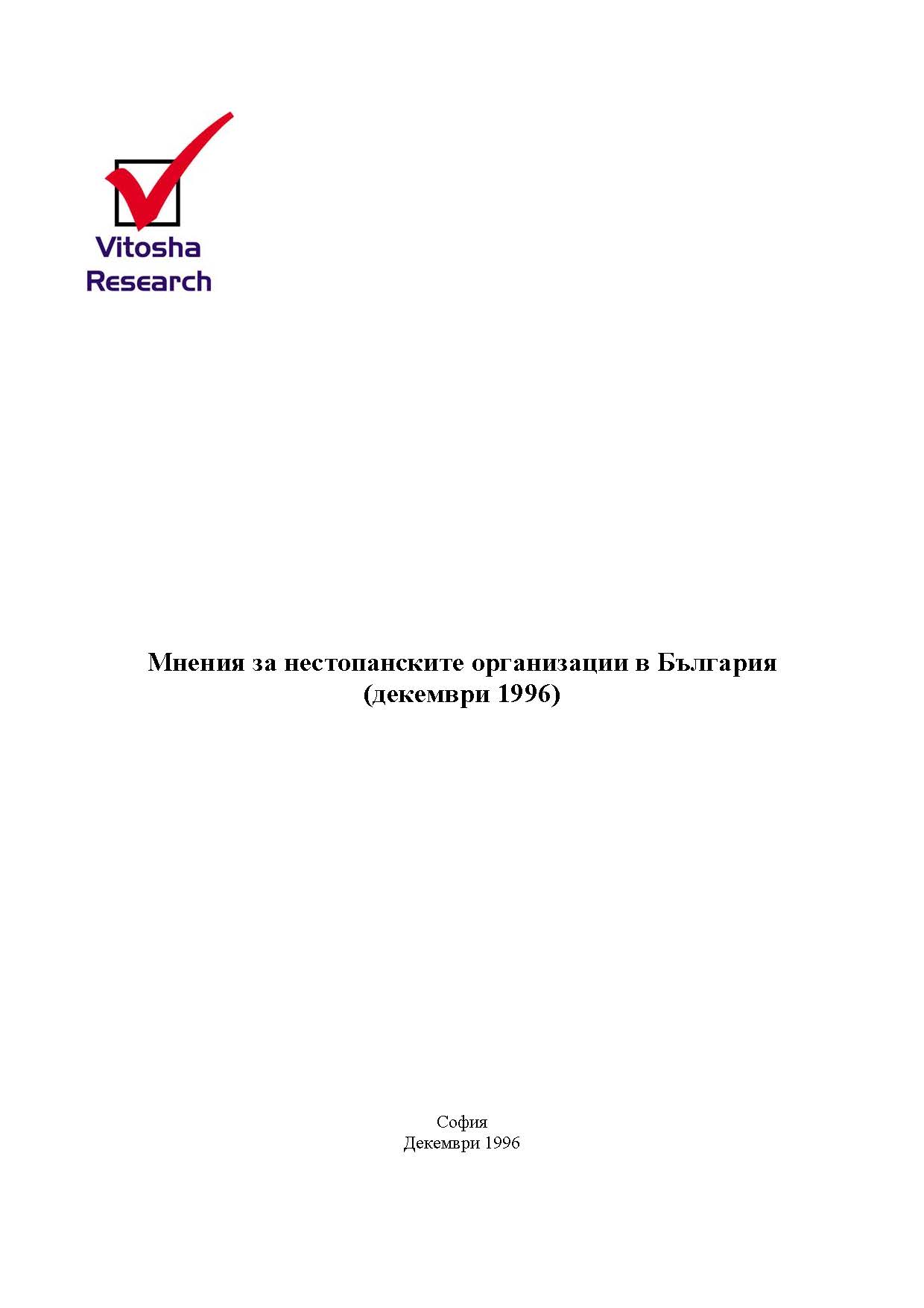
A representative national survey was conducted by Vitosha Research in the month of December 1996 with the aim of registering popular attitudes to NGOs in Bulgaria. It was conducted between 1-14 December, 1996 by the personal interview method with the participation of 1,561 respondents aged over 18. Two-stage cluster sampling was used. In the first stage 250 constituencies (clusters) were randomly selected from the list of constituencies in the last parliamentary elections of 1994, and the second stage consisted in randomly selecting 7 respondents out of each cluster. The sample included 176 clusters in towns and cities and 74 clusters in villages.
More...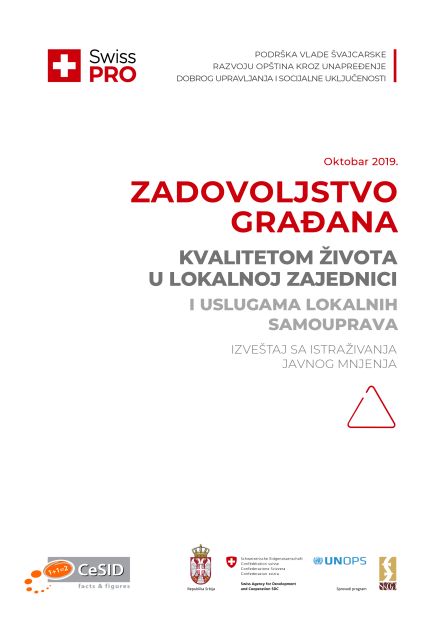
The public opinion survey was carried out as part of the program "Support of the Government of Switzerland to the development of municipalities through the improvement of good governance and social inclusion - Swiss PRO", which is supported by the Government of Switzerland in cooperation with the Government of Serbia, and implemented by UNOPS in partnership with SKGO. The research was carried out by CeSID in the period from March 15 to April 20, 2019, on the territory of 50 municipalities and cities in Serbia.
More...